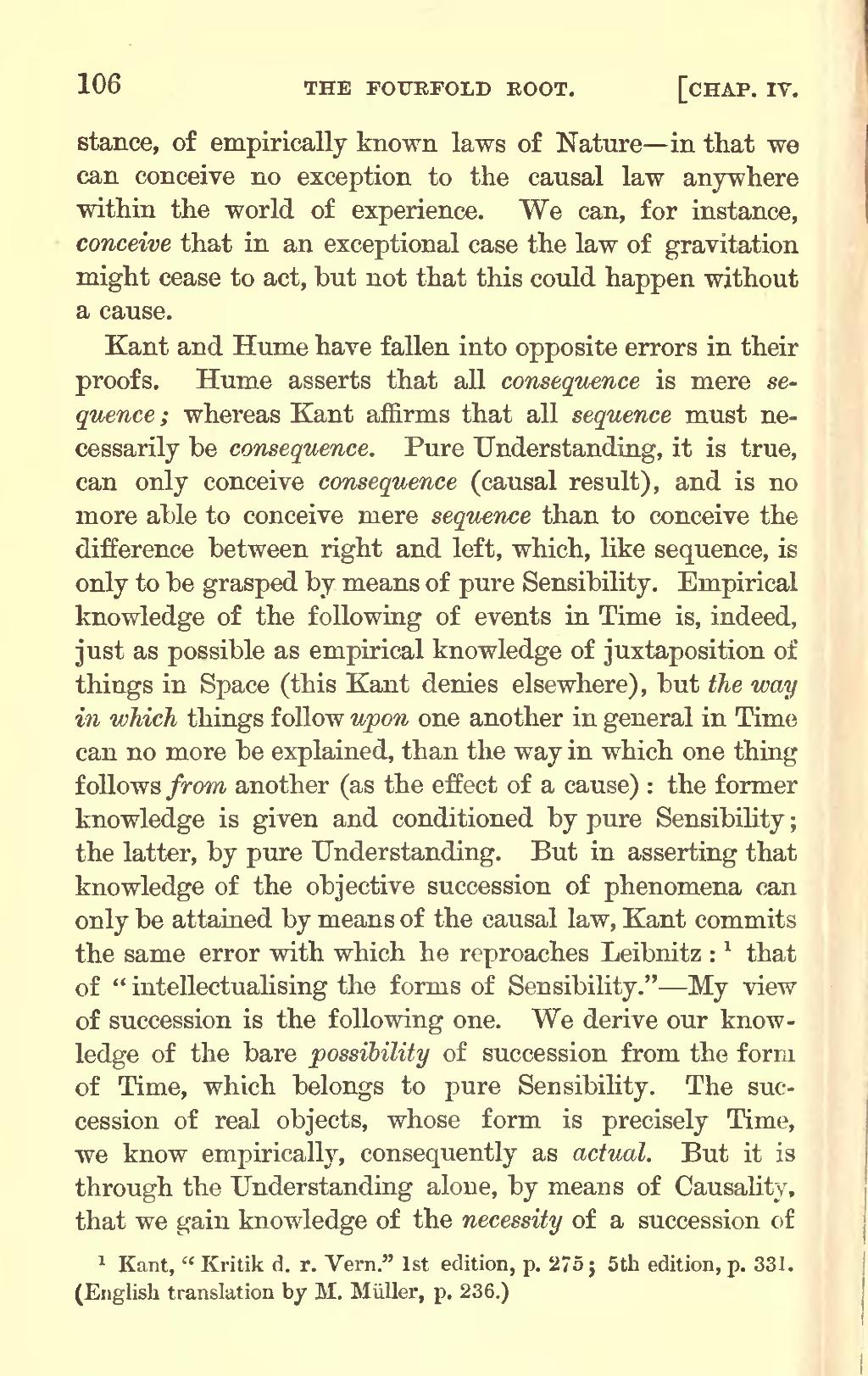of empirically known laws of Nature—in that we can conceive no exception to the causal law anywhere within the world of experience. We can, for instance, conceive that in an exceptional case the law of gravitation might cease to act, but not that this could happen without a cause.
Kant and Hume have fallen into opposite errors in their proofs. Hume asserts that all consequence is mere sequence; whereas Kant affirms that all sequence must necessarily be consequence. Pure Understanding, it is true, can only conceive consequence (causal result), and is no more able to conceive mere sequence than to conceive the difference between right and left, which, like sequence, is only to be grasped by means of pure Sensibility. Empirical knowledge of the following of events in Time is, indeed, just as possible as empirical knowledge of juxtaposition of things in Space (this Kant denies elsewhere), but the way in which things follow upon one another in general in Time can no more be explained, than the way in which one thing follows from another (as the effect of a cause) : the former knowledge is given and conditioned by pure Sensibility ; the latter, by pure Understanding. But in asserting that knowledge of the objective succession of phenomena can only be attained by means of the causal law, Kant commits the same error with which he reproaches Leibnitz: [1] that of "intellectualising the forms of Sensibility."—My view of succession is the following one. We derive our knowledge of the bare possibility of succession from the form of Time, which belongs to pure Sensibility. The succession of real objects, whose form is precisely Time, we know empirically, consequently as actual. But it is through the Understanding alone, by means of Causality, that we gain knowledge of the necessity of a succession of
- ↑ Kant, "Kritik d. r. Vern." 1st edition, p. 275 ; 5th edition, p. 331. (English translation by M. Müller, p. 236.)
